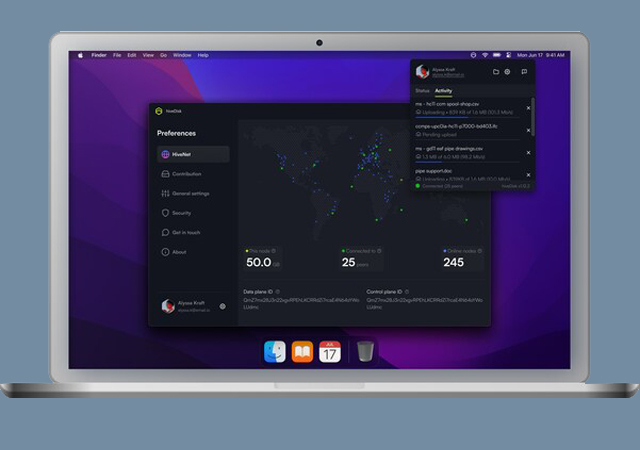

Gulf Industry Magazine helps you catch up with the numbers behind economic and industrial developments in the region.
Mena sovereign ratings on the decline
THE sharp drop in oil prices since mid-2014 is likely to lead to weakening economic, external and fiscal profiles for the region, particularly for the GCC, said a new analysis released by Standard & Poor’s.
However, of the 12 Mena (Middle East and North Africa) sovereigns rated, only the ratings on Bahrain and Oman have been decreased since July, added the Mena Sovereign Rating Trends 2015 from S&P’s Ratings Services.
“In our view, the net hydrocarbon importers - Egypt, Morocco, Jordan, and Lebanon - could see some modest improvement in macroeconomic indicators as a result of the fall in the oil price - but we do not believe this will be significant enough to lead to positive rating actions,” the report said.
“We rate nine of the 12 Mena sovereigns in the ‘BBB’ rating category or above. The average Mena sovereign rating is ‘BBB+’. When weighted by GDP, however, the average moves closer to ‘A’ because we rate the larger economies – measured by nominal GDP - higher than the smaller economies.
“These averages mask a clear difference between those sovereigns with a significant hydrocarbon endowment and those without. The average rating for the hydrocarbon-endowed sovereigns of Abu Dhabi, Bahrain, Kuwait, Oman, Qatar, and Saudi Arabia, is currently close to ‘A+’, while for those without hydrocarbon resources it is closer to ‘BB+’.
“Of the 12 Mena sovereigns we rate, 10 currently have a stable outlook despite the still-challenging political and economic backdrop. Our rating outlooks are intended to indicate our view of the potential direction of a long-term credit rating, typically over six months to two years for investment-grade ratings and six months to one year for speculative-grade ratings,” the report said.
GCC records inflation rates of more than 3pc
THE inflation rates across the GCC region ranged between 3.1 per cent and 0.8 per cent last year, according to the latest reports by the Statistical Centre for the Co-operation Council for the Arab Countries of the Gulf (GCC-Stat).
The highest annual inflation rise was registered in the UAE with 3.1 per cent, followed by 3.04 per cent in Kuwait, 2.7 per cent in Qatar, 2.5 per cent in Bahrain and 2.4 per cent in Saudi Arabia. Oman registered the lowest rise of 0.08 per cent, reported the Gulf Daily News, our sister publication.
On a monthly basis when comparing the December 2014 figures to the November figures, the general consumer price index registered an increase of 0.97 per cent in Kuwait, 0.34 per cent in the UAE, 0.2 per cent in Bahrain and 0.1 per cent in Saudi Arabia.
On the other hand, it registered a decline by 0.3 per cent in Qatar and 0.08 per cent in Oman. When compared to December 2013, foods and drinks prices registered an increase in most of the GCC countries by December 2014.
Bahrain and Saudi Arabia registered an increase of 2.6 per cent, followed by Kuwait with an increase of 2.57 per cent, Oman by 0.22 per cent, the UAE by 1.33 per cent. Qatar registered a decline of 0.4 per cent.
Figures showed an increase in housing and utility prices in all the GCC countries in December last year when compared with 2013 figures.
Qatar registered an increase of 7.3 per cent, Bahrain by 6.1 per cent, the UAE by 5.39 per cent, Kuwait by 5.03 per cent, Saudi Arabia by 2.5 per cent, and a marginal increase by 0.38 per cent in Oman. Transport prices also increased in the GCC last year when compared with 2013.
The UAE registered an increase of 1.82 per cent, followed by Kuwait by 1.54 per cent, Saudi Arabia by 1.5 per cent, Qatar by 1.2 per cent, Bahrain by 0.5 per cent and Oman by 0.31 per cent.
Oil price fall cuts Kuwait budget surplus
KUWAIT’S government budget surplus shrank 26 per cent in the first nine months of this fiscal year as lower oil prices cut revenue sharply, analysts at National Bank of Kuwait (NBK) calculated, using Ministry of Finance data.
The surplus totalled KD10.6 billion ($35.9 billion) between April and December, down from KD14.3 billion a year earlier.
The plunge in oil prices since last June has squeezed state finances and if Brent crude stays at its current level of around $60 a barrel in the coming year, some analysts believe Kuwait could run a budget deficit or come close to it.
NBK, the country’s largest bank, predicted the surplus for the full fiscal year to the end of March would total KD4.1 billion, the smallest surplus in six years, though it would still be large by international standards at 8.7 per cent of gross domestic product.
Government spending rose 10 per cent to KD10.6 billion in the first nine months of the fiscal year. Capital spending surged 31 per cent to KD900 million, or 39 per cent of the budget’s annual allocation for capital spending.
Mideast tops world in cyber security priority
MORE than half of business and government leaders in the Mena region identify cyber security as a strategic priority, compared to only 23 per cent in the US and 36 per cent in UK/Europe, a report said.
Boards of directors in 35 per cent of Mena organisations have been briefed on strategic cyber security issues in the last 12 months, as compared to 22 per cent globally, added the survey titled, “Global Megatrends in Cybersecurity 2015” and commissioned by US-based Raytheon Company, a technology and innovation leader.
Sponsored by Raytheon and conducted by the US Ponemon Institute, the survey was based on responses from more than 1,000 chief information security officers (CISOs) and IT security practitioners from the US, Europe and the Mena region.
Respondents, including 182 from the Mena region alone, answered a variety of probing questions on issues ranging from emerging technologies to predictions on major future threats and levels of readiness.
The survey reveals 65 per cent of Mena experts, 67 per cent of US experts, and 66 per cent of UK/Europe experts share the view that more skilled cyber security experts are needed to effectively manage risks from increasingly complex and sophisticated attacks.
Within the Mena region, more CISOs in the energy industry are investing in big data analytics (24 per cent) than in organisations at large (18 per cent). Security officers in the region’s energy sector consider cybercrime as being a larger share of their overall security concerns than other Mena industries.









